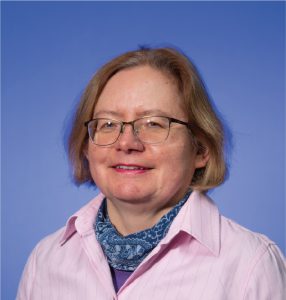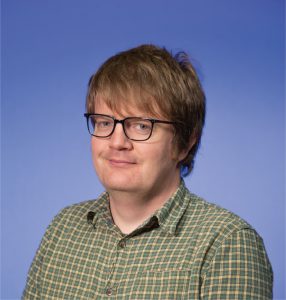People
Our Facilities Managers

Dave Ellis
Dr Dave Ellis studied chemistry at the University of Exeter and graduated with a PhD (supervised by Professor Eddie Abel and Dr Keith Orrell) in 1991. He carried out postdoctoral work at various Universities across the UK before joining Heriot-Watt in 2000 as a research assistant to Professor Alan Welch. In 2010 he became a permanent member of staff, acting as facilities manager for NMR spectroscopy and then Assistant Professor (Lecturer) in chemistry in 2022. In the same year he was appointed Programme Leader for a new MSc in Analytical Science for the Biosciences Industries. Dave has research interests in various aspects of NMR spectroscopy including complex mixture analysis, reaction monitoring and the applications of solid-state NMR to the understanding of molecular dynamics.

Ruaraidh McIntosh
Dr Ruaraidh McIntosh (RDM) is an Assistant Professor at Heriot-Watt University (HWU). RDM’s wide-ranging background has allowed him to develop expertise in the chemistry of inorganic clusters, dealing with air-sensitive compounds, organometallic chemistry, supramolecular chemistry and the characterisation of large assemblies. RDM currently leads a group of five PhD students whose research is broadly focused on the utilization of sustainable resources, particularly in the field of materials science. RDMs work has been funded through a combination of grants from UKRI (EPSRC) and industrial collaborators. Recent collaborations include the development of framework materials for the valorisation of CO2, new materials for healthcare application and Ni systems for the controlled polymerisation of ethylene.

Georgina Rosair
Dr Georgina Rosair is a Scientific Officer specialising in X-ray diffraction, in particular single crystal diffraction. She studies the structures of molecular compounds made by chemists at Heriot Watt and their collaborators such as metallacarboranes, organometallic and organic small molecules with applications in photo catalysts and photosensitisers and compounds of pharmaceutical interest. Our current diffractometer is a dual source (Mo, Cu) Bruker D8 Venture. Her role has expanded into powder diffraction on materials used in carbon capture, and metal deposition on thin films. Our latest instrument is a Malvern Panalytical Empyrean diffractometer which can be employed for SAXS as well as PXRD. She is also involved in teaching inorganic chemistry, particularly practical laboratory courses.

Filipe Vilela
Dr Filipe Vilela, under the supervision of Professor David C. Sherrington FRS, completed in 2008 his PhD in the field of polymer chemistry at the University of Strathclyde, Glasgow, Scotland. Since then, Filipe has worked in organic electronics (Strathclyde), and in heterogeneous photocatalysis as a Research Group Leader at the Max Planck Institute of Colloids and Interfaces, Potsdam, Germany. Filipe is currently an Assistant Professor at Heriot-Watt University with research interests centred on developing photoactive polymers for photocatalytic applications under continuous flow conditions. Filipe has also driven the establishment of the Continuum Flow Lab at Heriot-Watt University, which amongst many other things focuses on expanding the toolkit for automated flow synthesis, including bespoke reaction monitoring and purification technologies.

Graeme Barker
Dr Graeme Barker was appointed as an assistant professor in the Institute of Chemical Sciences at Heriot-Watt University in 2016. His background is in synthetic organic methodology using group 1 & 2 organometallic complexes, as well as gold(I) catalysis and medicinal chemistry. His current research is focused on the use of organolithium and organozinc complexes for the Csp3-H functionalisation of common small molecule drug motifs, as well as medicinal chemistry for therapeutic intervention in cell signalling cascades. Alongside social scientist colleagues, he also maintains an active interest in understanding the needs of underrepresented groups in STEM and technological solutions to barriers experienced by disabled chemical scientists. His work has been funded by the EPSRC, British Heart Foundation, Scottish Enterprise, Carnegie Trust and Royal Society of Chemistry.

Clayton Magill
Dr Clayton Magill is an Assistant Professor of Biogeochemistry at the Lyell Centre at HWU, with expertise in marine, terrestrial, and industrial bio(geo)chemical techniques viz. molecular and isotopic characterization of natural and synthetic molecules using gas chromatography-mass spectrometry. Dr Magill has extensive experience with managing ‘untargeted’ molecular analyses in complex environmental (e.g., soils, sediments, waters), biological (e.g., tissues), and industrial (e.g., composites) matrices. He also has experience with ‘targeted’ molecular analyses in commercial applications related to quality assurance, quality control and forensics. In all cases, data acquisition is carried out at the highest levels of rigour with state-of-the-art instrumentation.
